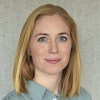Norway, Sweden and the Netherlands face similar challenges in providing high quality science teaching for all, given the high influx of newly arrived students, but there are remarkable differences in approaches towards hyper diversity in mainstream classes. Dutch educational authorities offer general frameworks but do not interfere with teachers pedagogical choices nor in professional development, in contrast to a very active Swedish National Agency.
This project aims to contribute to inclusive science education through studying teachers' classroom work across educational contexts, when provided with innovative tools to explore new literacy approaches and integrate them in their planning of inclusive lessons.
Acknowledging the importance of science literacy to multilingual students' achievements in the core subject of science, successful approaches for heterogeneous groups have been identified, in specific 'using multilingual resources', 'using language scaffolding' and 'creating interactive discourse practices'. Teachers will be provided with professional development and Inclusive Science Materials and their enactment will be studied.
Main research question is 'What literacy oriented approaches can be successful for inclusive science education in multilingual primary classrooms in different educational contexts'?
Three parallel case studies, one for each country, will be conducted in heterogeneous classrooms, in which children with migrant background (newly arrived or not) or a multi- and/or minority language background learn together with mother tongue speakers of the language of instruction. Teachers are the key persons to adapt pedagogical approaches therefore close cooperation between researchers and teachers is required. For this reason, Educational Design Research provides a suitable approach.
In each country, we will conduct a design study. Teachers will use the same inclusive science thematic packages and we will follow how and why they use these the way they do. We record teachers conversations in which they adapt thematic units, developed by the researchers to their own practice. We introduce the units in professional development sessions. Of course, also student outcomes and actual participation in classroom activities will be monitored. Apart from theoretical outcomes, practical materials will be available for teacher training.
